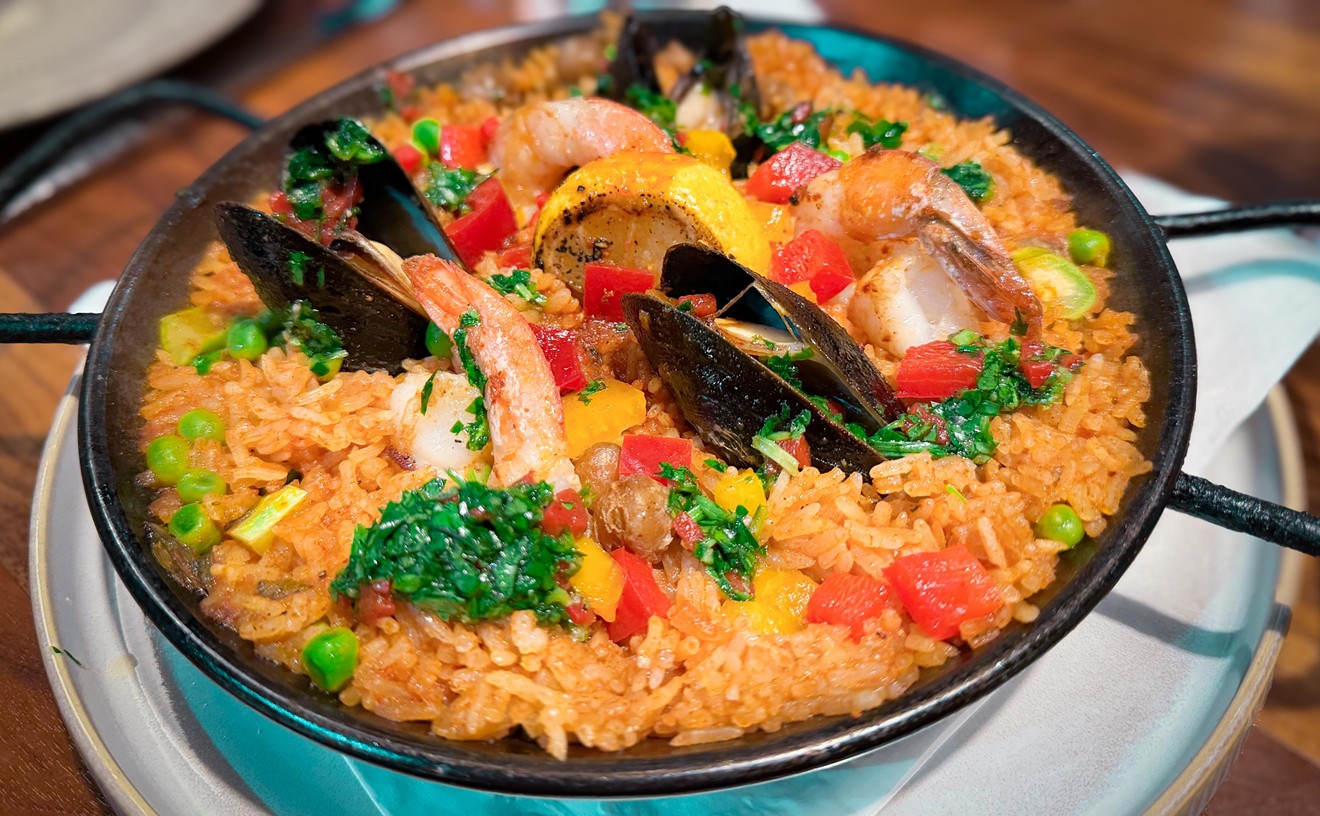Andrea Nguyen's presentation at the Southern Foodways Alliance symposium this weekend was bound to be a bit contentious, as the award-winning cookbook author was slated to explain to a roomful of proud Southern eaters and cooks that the Vietnamese crawfish tradition rightly belongs to California. But it was the Texans who most adamantly challenged her thesis, arguing the fad got its start in the Lone Star State.
Nguyen adjusted her theory in advance of her talk on "Bags, Butter, Surfboards, and Spice: Viet-Cajun in Cali," which included plenty of insights unrelated to provenance (and a series of images so mouthwatering it seemed plain mean to screen them outside of crawfish season.)
"The crawfish thing fits right in our cultural foodways," said Nguyen, who wrote Into the Vietnamese Kitchen.
As Nguyen explained, "there is no word for crawfish in Vietnam." But Cajun-style crawfish boils resonated with Vietnamese immigrants along the Gulf Coast, who had an affinity for seafood and labor-intensive dishes. The first Vietnamese crawfish joints opened in Houston in the 1990s, and the trend quickly shot westward: A Los Angeles restaurateur Nguyen interviewed reported he goes through about 450 bibs a day.
Nguyen has identified an l-shaped Vietnamese crawfish region that stretches from Seattle to Orlando, but the letter 'B' might be a better alphabetic analogy, since there are now a number of crawfish outposts in landlocked urban areas. The Boiling Crab, the quintessential Viet-Cajun crawfish house, has eight California locations and one Dallas restaurant on the corner of Walnut Street and North Plano Road.
The Boiling Crab's so popular in California that a 90-minute wait for a table at 3:30 p.m., a half-hour after the restaurant opens, is not uncommon. Nyguen said customers are drawn by the messiness and the novelty of crawfish doused in margarine and served in clear plastic bags.
"If you notice, there are no utensils," Nguyen said. "Even when we're picking shrimp in Saigon, we get a little picker. Here, you're lucky if you get a roll of paper towels."
The only real concession to Vietnamese cuisine is the salt, black pepper and lime served with each order.
"The rest, my friend, is Southern," Nguyen said.
The restaurant owners Nguyen interviewed told her they resisted suggestions to lard their menus with crawfish-studded rice and noodles, since "if you mix Vietnamese food up too much, you're giving a bad impression of Cajun food to Asians." Further distinguishing themselves from other standard Vietnamese restaurants, most crawfish shacks don't traffic in karaoke or boba tea. Instead, restaurant owners have hung Mardi Gras beads and erected pirate statues, creating perhaps the nation's first crossover theme restaurant concept to be associated so firmly with a single ethnic group.
While The Boiling Crab's Vietnamese roots aren't immediately apparent -- the restaurant's website refers to owners Dada Ngo and Sinh Nyguen as Yo' Mama ("the consummate Midwest girl from Kansas") and Yo' Daddy (described as a crabber from Seadrift, Texas) -- Nguyen said immigrants recognize the joint as culturally simpatico. Crawfish houses allow first- and second-generation Vietnamese-Americans to eat adventurously while dining within their own communities.
"It is changing the way Vietnamese people are shaping their communities," Nguyen said. "It is changing the way Vietnamese people are shaping their foodways."










